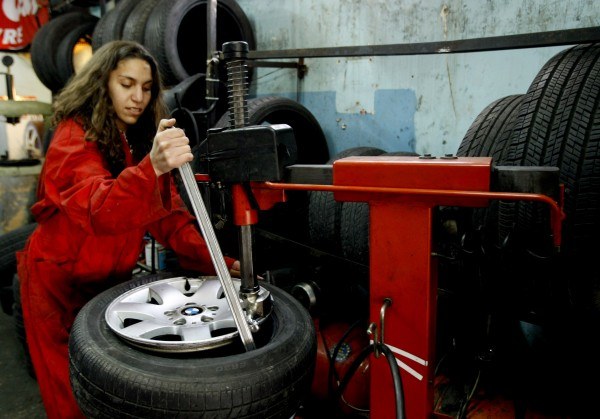 Have you ever suspected during inspections?, that you paid for totally unnecessary repairs? Then you should take a closer look at your car before your next appointment. That saves a lot of trouble.
Have you ever suspected during inspections?, that you paid for totally unnecessary repairs? Then you should take a closer look at your car before your next appointment. That saves a lot of trouble.
Mercedes driver Jakob Rohde was amazed, when he picked up his 180 from his Munich workshop: 2678,38 Mark were on the bill – and that for a normal inspection. In addition to brake discs and the complete exhaust system, the mechanics had in the 45 OOO inspection at the same time, various engine seals renewed and – Peak of anger – the wiper blades replaced. Reason: “They've already been lubricated.” Rohde only put on new windshield wipers shortly before the inspection!
Like Rohde, many car owners are doing, who carry out the due inspections, so as not to forfeit any guarantee claims. Most of them give orders according to the motto "Do only what is necessary."
What is that, the workshops then decide, and the layman has to believe it. But nobody needs to issue a license, because you can check important parts yourself before the inspection. Repairs that are due cannot be avoided even with a visual inspection, but it protects the driver from overdrawn bills. Here are the most important controls:
• Tires: Are cracks or dents visible?? Is the tread depth correct? Caution: It is usually sufficient to replace the drive wheels!
• Windshield wipers: Lubricate or jerk the wiper blades?
• Headlights: Are the reflectors blind, the halogen spotlights work?
• Shock absorbers: The car springs back when pressure is applied to the fenders?
• Brakes: Are the brake pads worn?? There is a groove across the running direction, which is around eight to ten millimeters deep with new coverings.
• Exhaust: Roots the system?
• Motor: Oil leaks somewhere? Look for greasy dust spots on the engine block, put a newspaper under it overnight.
Another tip: All replaced parts should be presented to you by your workshop. No complaints can be recognized, you have the right, to reduce the bill.
air to breathe: Dirty filter elements reduce engine performance and increase fuel consumption.
Only the specialist workshop can do that: The modern diagnosis centers use computer technology to determine all important engine data.
The oil change that is due is also taken over by the specialist workshop, the disposal of the used oil naturally has its price.
Scoring on the brake disc? No need to worry. It gets critical, if the minimum thickness is not reached.
The expensive little things
Beware of extras: Fuel additives supposedly flush the engine ("Pulls much better"), but only fill the workshop cash register. Expensive synthetic oil at a price of 24,95 Mark doesn't need an engine in a normal car. Also an engine wash („…so that the mechanic could work cleanly ") is not absolutely necessary, but can with full 50 Record Mark. Precautionary measure: When placing an order, you should expressly exclude such work.
Small workshop etiquette
■ Make an appointment with the customer service advisor. Inspections take time, Do not push for the pickup.
■ Explain the actual or suspected defects directly on the vehicle. A written list of defects is very helpful.
■ If anything is unclear to you when speaking to the customer service advisor, ask without hesitation, until everything is cleared up.
■ Issue a clear written mandate, have the order confirmation handed over to you.
■ Ask about the estimated costs. Leave a phone number, so that you can be reached if you have any questions.
■ Drive to a recognized master mechanic, recognizable by the white-blue-en sign "Meisterbetrieb der Kfz-Innung".
■ Complaints should be emphatically represented. In the event of any discrepancies, the arbitration board of the motor vehicle trade guild helps.